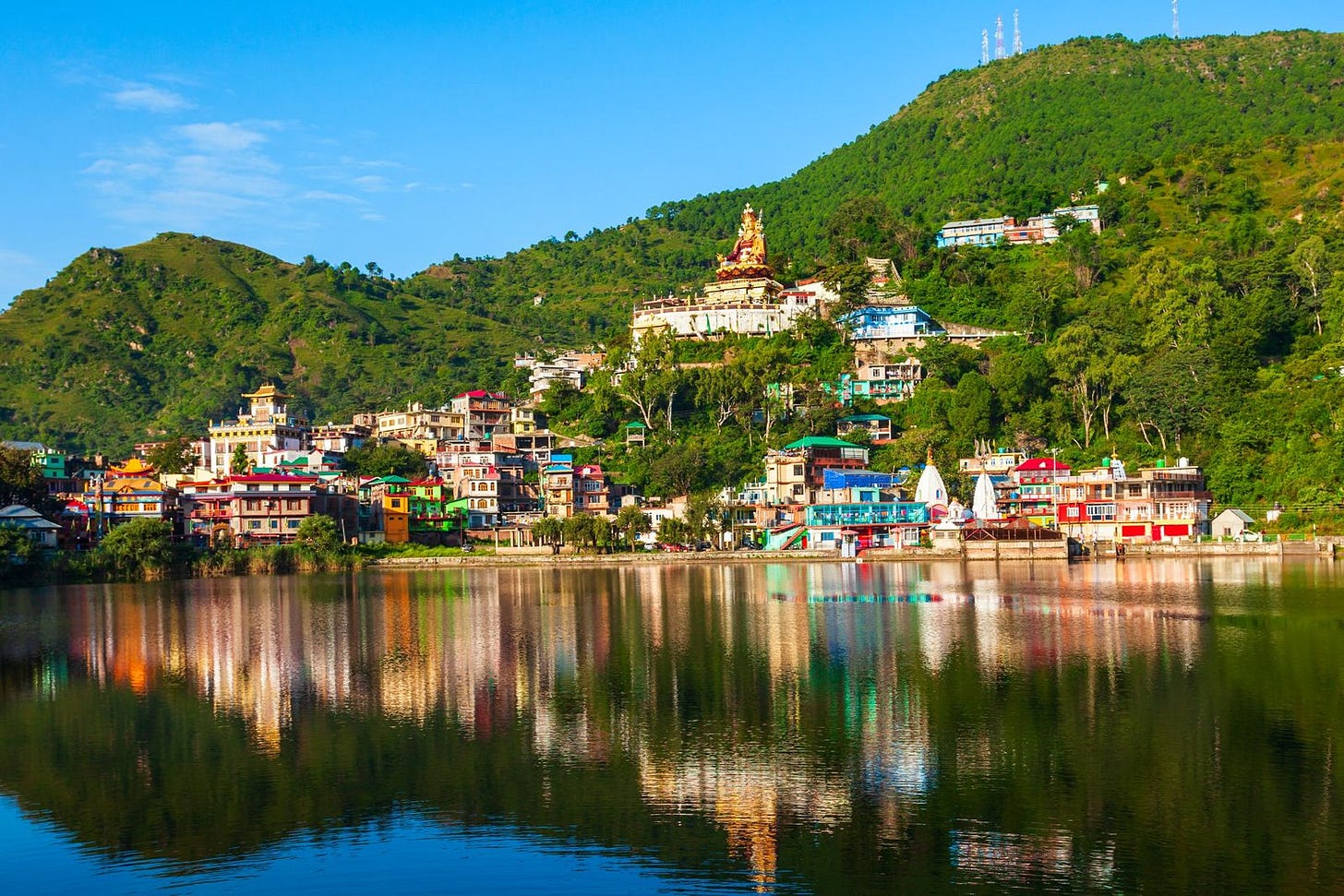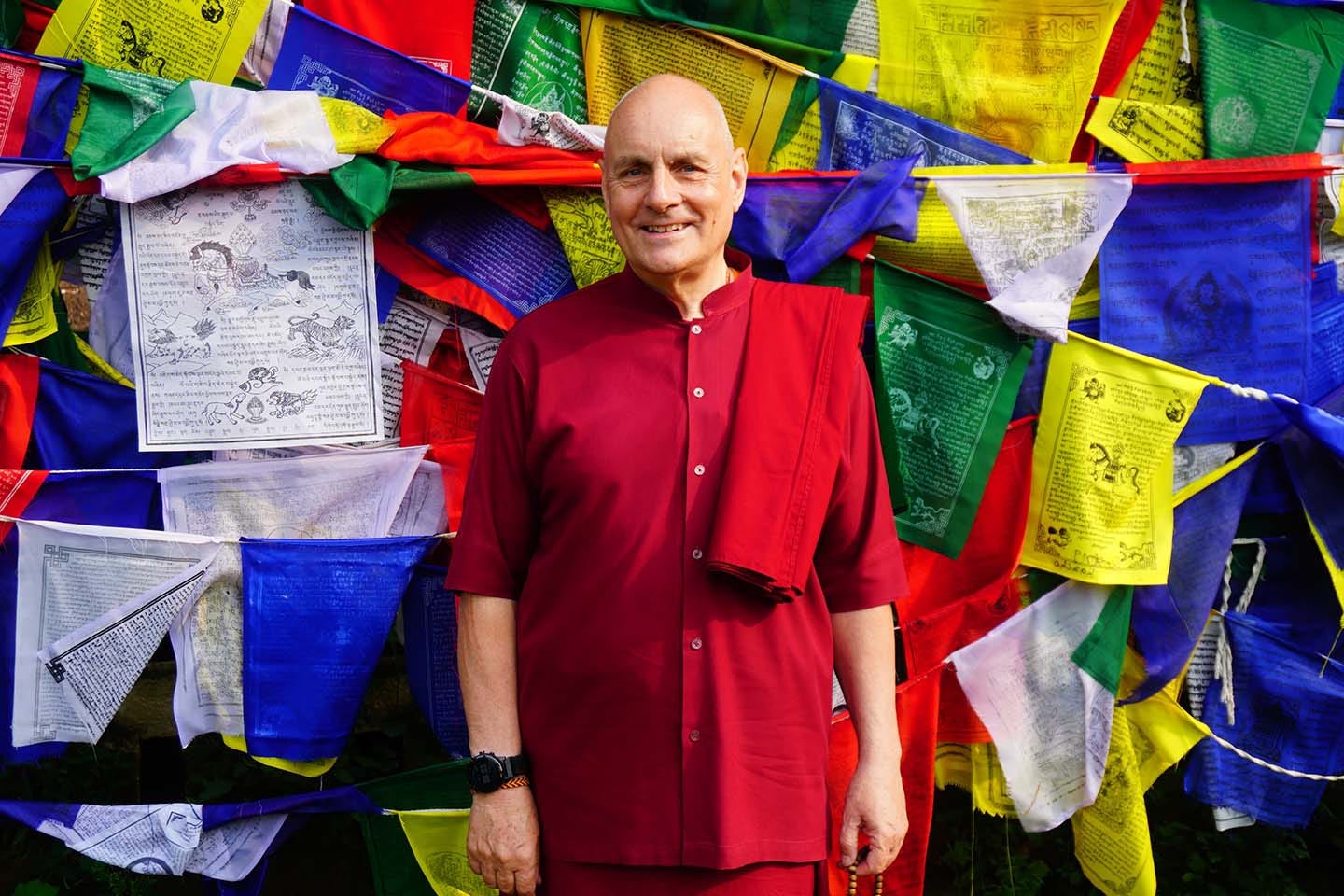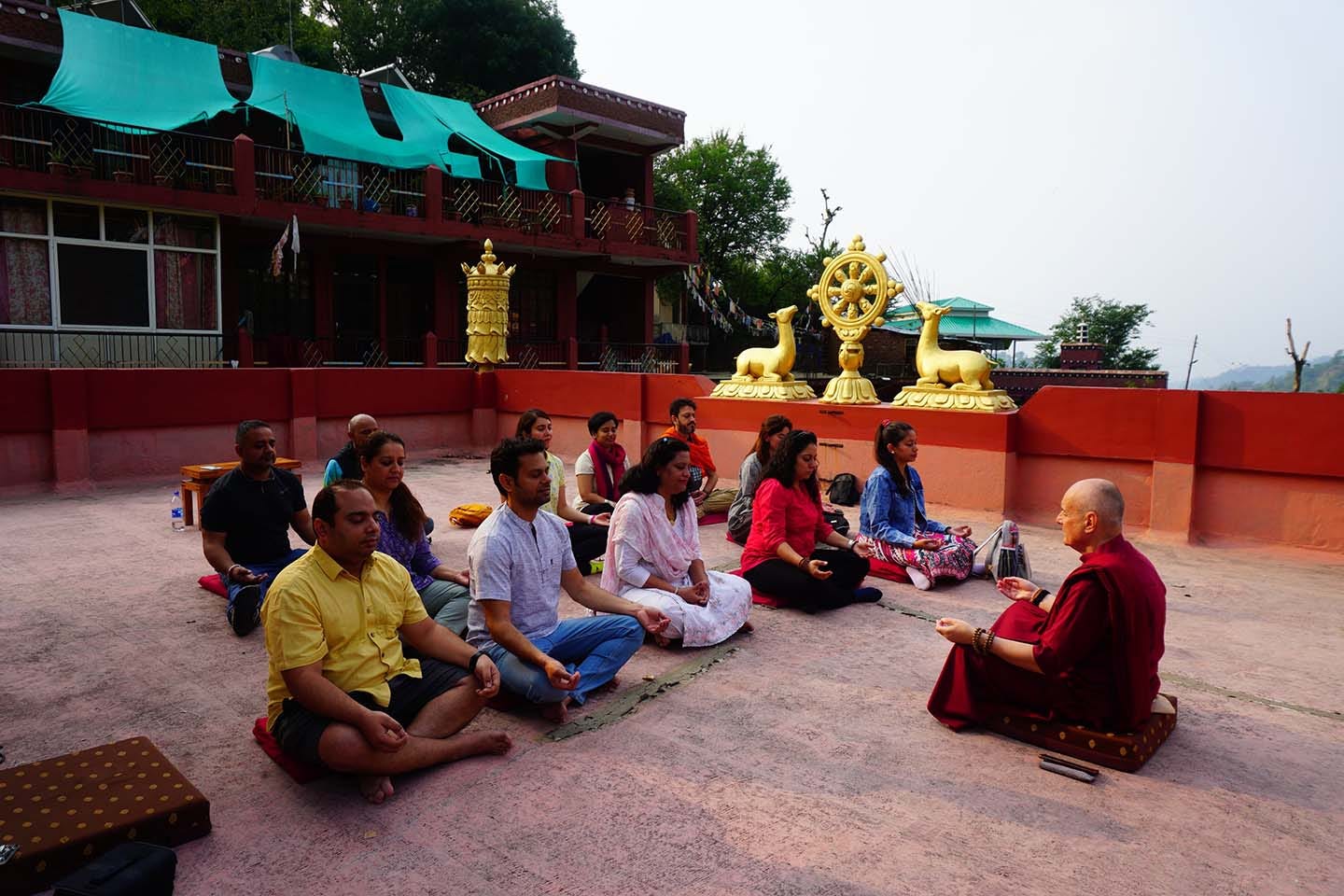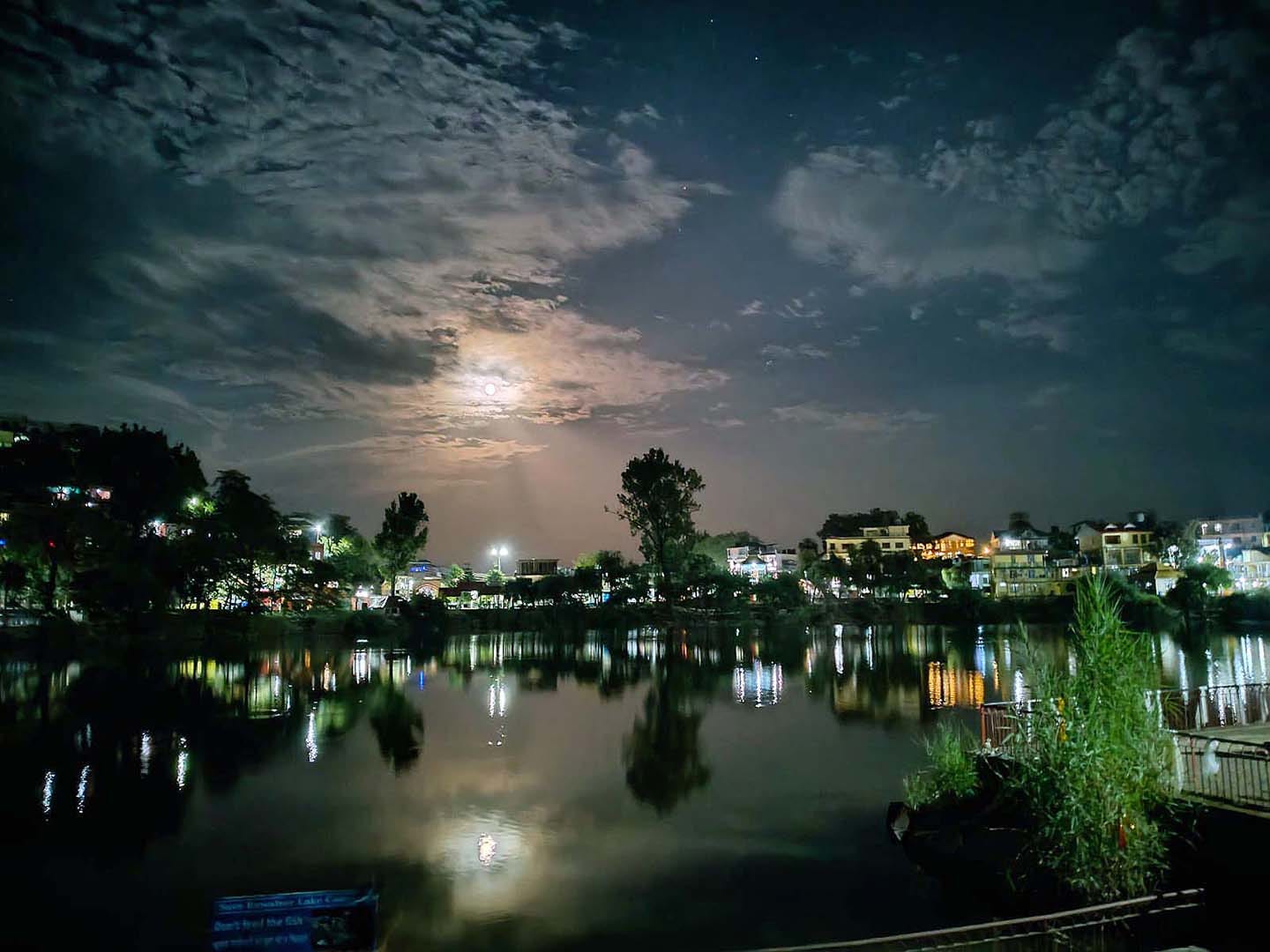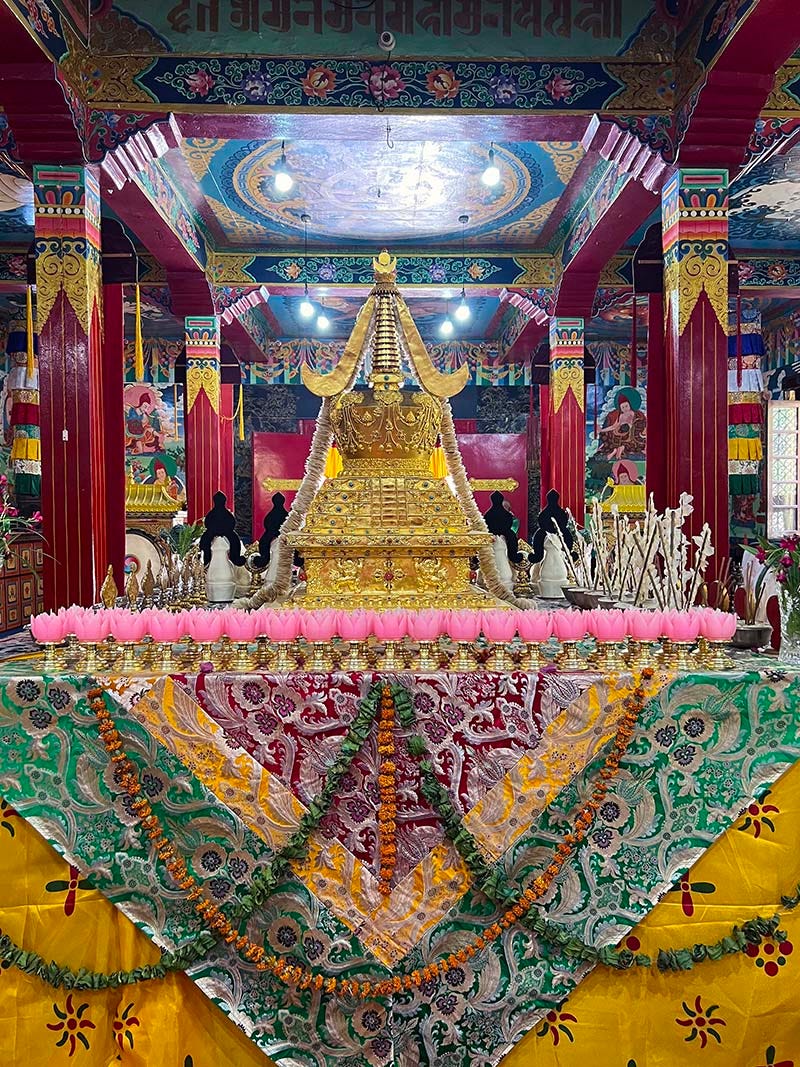Nestled in the serene landscapes of Himachal Pradesh, the Buddhist monastery at Rewalsar became the backdrop for an enriching meditation retreat I recently attended. I’m Prince Pal and this is my personal experience.
This five-day journey, guided by the esteemed lama ji Yeshe Rabgye, was an immersive experience that explored the depths of a compassionate mind and the practice of compassionate meditation.
Alongside fourteen other participants, I embarked on this spiritual quest to explore and nurture the essence of compassion within.
The Retreat: An Overview
The retreat at Rewalsar was meticulously designed to provide a holistic approach to meditation and self-discovery.
Each day was structured to include meditation sessions, teachings from lama ji Yeshe Rabgye, and opportunities for personal reflection.
The monastery and the surrounding caves offered a tranquil setting, enhancing the meditative atmosphere and fostering a deeper connection with nature and oneself.
Day 1: Arrival and Introduction
Upon arriving on a tranquil Friday afternoon, we settled into the monastery, greeted by the serene surroundings that would become our haven for introspection. An introductory session in the evening set the tone, preparing us mentally and spiritually for the journey ahead.
Day 2: Exploring Compassion
The following day began with early morning group meditation, grounding us in mindfulness and setting a peaceful rhythm.
Sessions focused on understanding the essence of compassion and exploring its various facets through discussions and reflective exercises.
Amidst the lush greenery, our morning kora—a meditative walk around the holy Rewalsar Lake—connected us with nature and ourselves.
Day 3: Embracing Silence
Sunday was designated a day of silence—a profound opportunity for personal reflection and introspection.
Engaging in silent group meditations and contemplating quietly allowed me to delve deep into my thoughts and emotions, gaining clarity and understanding about my inner workings.
Day 4: Meditation in Monastery Caves
Monday (24 June 2024) took us on a transformative journey to meditation caves, where the ancient practice of meditation unfolded in the tranquil depths of these sacred spaces. We also visited a nearby nunnery, deepening our understanding of monastic life and spiritual dedication.
After exploring the cave, Lama Ji Yeshe Rabgye led us through a serene and transformative sound bowl meditation session just before his birthday celebrations.
As we gathered in the meditation hall, the gentle resonance of the sound bowls filled the space, creating an atmosphere of tranquility and deep relaxation.
The harmonious tones produced by the skillful movement of the bowls seemed to penetrate our beings, dissolving any lingering tension and fostering a profound sense of inner peace.
This meditative experience enhanced our mindfulness and prepared our hearts and minds for the joyful birthday celebration that followed, allowing us to connect in harmony and compassion.
We celebrated Lama Ji Yeshe Rabgye's birthday at Emaho Cafe, where Chef Negi Ji delighted us with a surprise—a delicious carrot cake and snacks. The joy of the celebration added a festive spirit to our retreat, strengthening our sense of community and gratitude.
Day 5: Reflection and Farewell
As the retreat drew close on Tuesday morning, we gathered for final group meditations and reflections.
The teachings on the three types of compassion resonated deeply, emphasizing the importance of empathy and kindness in our daily lives.
Departing with a sense of inner peace and renewed purpose, I left Rewalsar carrying the invaluable teachings of lama ji Yeshe Rabgye and the transformative power of compassionate meditation.
What is Compassion?
In retreat, I learned Compassion is a profound and multifaceted emotional response that involves recognizing the suffering of others and being motivated to alleviate it. It goes beyond mere empathy, which is the ability to understand and share the feelings of another by including a desire to help. Here are the key aspects of compassion:
Recognition of Suffering: Compassion starts with an awareness of another's pain or distress, which can be physical, emotional, or psychological.
Motivation to Help: Compassion involves a strong desire to take action to relieve the suffering we witness. This might involve providing support, offering comfort, or engaging in acts of kindness.
Understanding and Acceptance: Compassion requires understanding the situation and accepting the sufferer without judgment. It involves seeing the person's pain and acknowledging their experience.
Self-Compassion: Compassion isn't only directed outwardly; it also includes being kind and understanding towards oneself in times of failure or difficulty. Self-compassion involves treating oneself with the same care and concern as a friend in distress.
Try this Compassion Meditation.
What is Self-Compassion?
I learned that self-compassion is treating oneself with the same kindness, understanding, and care that one would offer a good friend or loved one, especially in times of failure, difficulty, or suffering.
A self-compassionate person can easily help others with an open heart.
Self-compassion can be explored through three distinct types, each involving different directions of focus and interaction. These are:
Compassion for Others: This type involves recognizing the suffering of others and being motivated to help alleviate their pain. It encompasses empathy, understanding, and the desire to support and comfort others.
Compassion from Others: This type focuses on receiving compassion from others. It involves allowing oneself to be open to the kindness, support, and care that others offer. This can be crucial for healing and feeling connected in times of distress.
Self-Compassion: This type involves directing compassion towards oneself. It means being kind, understanding, and supportive of oneself, especially during failure or suffering. It includes self-kindness, mindfulness, and recognition of common humanity.
Benefits of Self-Compassion
Emotional Well-Being: Self-compassion is associated with greater emotional resilience, lower levels of anxiety and depression, and higher levels of happiness and life satisfaction.
Motivation and Growth: Self-compassion fuels intrinsic motivation for personal growth by nurturing a supportive inner dialogue, contrasting with the belief in self-criticism as a motivator.
Improved Relationships: People who practice self-compassion tend to have more compassionate and empathetic relationships with others. They can better understand and support others because they treat themselves with the same care.
Reduced Stress: Self-compassion helps reduce the stress associated with self-criticism and perfectionism. Treating oneself with kindness allows individuals to manage stress more effectively and maintain a healthier perspective.
Practicing Self-Compassion
Try this Self-compassion Meditation.
Self-Kindness Exercises: Engage in activities that nurture and care for yourself, such as taking time to rest, doing things you enjoy, and speaking to yourself with kindness in silence.
Journal Writing: Journal writing fosters self-compassion by providing a safe space to reflect, understand, and nurture a kinder relationship with oneself.
Self-Compassion Breaks: Take short breaks throughout the day to practice self-compassion. Pause, take a few deep breaths, and remind yourself of your common humanity and worthiness of kindness.
Challenging Self-Critical Thoughts: When you notice self-critical thoughts, challenge them by asking whether you would say the same things to a friend in a similar situation. Replace these thoughts with more supportive and understanding ones.
Tonglen (Sending and Taking) Meditation: Tonglen is a meditation practice where one visualizes taking in the suffering of others on the in-breath and sending out love and compassion on the out-breath. Steps of Tonglen:
Begin with Self-Compassion: Focus on your suffering and extend compassion towards yourself.
Expand to Loved Ones: Gradually extend this compassion to loved ones, friends, and all sentient beings.
Visualizing the Process: Visualize breathing in dark smoke (representing suffering) and breathing out white light (representing love and healing).
Benefits of Tonglen Compassion Meditation
Emotional Balance: Helps manage negative emotions and increase positive states of mind.
Empathy and Connection: Enhances empathy and fosters a sense of connection with others.
Inner Peace: Cultivates inner peace and resilience by reducing self-centeredness and increasing altruism.
Spiritual Growth: Supports spiritual development and the realization of interconnectedness and interdependence.
How do you keep a balance between Wisdom and Compassion?
In retreat, Lama Ji explained that balancing wisdom and compassion can be likened to the two wings of a bird, which are essential for flight and equilibrium. Wisdom represents the analytical and discerning aspect, akin to one wing that provides direction and stability. Its wisdom helps us navigate complexities, make informed decisions, and understand the broader implications of our actions.
Compassion, on the other hand, serves as the nurturing and empathetic wing of the bird. It embodies kindness, empathy, and the capacity to connect deeply with others' emotions and experiences.
Together, wisdom and compassion create a harmonious balance that propels us forward in our personal growth and interactions with the world. They ensure that our decisions are grounded in insight and ethical considerations and infused with empathy and a genuine concern for the well-being of others. By cultivating both wings equally, we cultivate a holistic approach to life that uplifts ourselves and those around us, achieving a balanced and fulfilling existence.
What is Khora?
In Tibetan Buddhism, "khora" refers to the meditative practice of circumambulating around a sacred site, such as a monastery, temple, stupa, holy lake, or a specific area considered spiritually significant. Khora involves walking clockwise around the site, often chanting mantras, spinning prayer wheels, or reciting prayers. It is a physical act and a spiritual practice aimed at cultivating mindfulness, devotion, and connection with the sacred environment. It is believed to accumulate merit and purify negative karma while deepening one's spiritual journey.
Conclusion
My meditation retreat at Rewalsar was a profound and transformative experience. Under the guidance of lama ji Yeshe Rabgye, I discovered the depths of a Compassionate Mind and the power of Compassionate Meditation.
The serene environment of the monastery and caves and the structured yet flexible retreat program made it an unforgettable journey of self-discovery and spiritual growth. Celebrating lama ji's birthday at Emaho Cafe was a delightful highlight, adding a joyful dimension to our retreat.
This retreat deepened my understanding of compassion and inspired me to integrate it more fully into my life, fostering a sense of peace and connectedness with myself and the world around me.
This is a guest blog post by Prince Pal. Thank you so much for sharing your unique experience on this page.
If you would like to become a supporter of my work, such as podcasts, blogs, videos and guided meditation practices, please visit my Patreon page here. You can support for as little as $2 a month.


